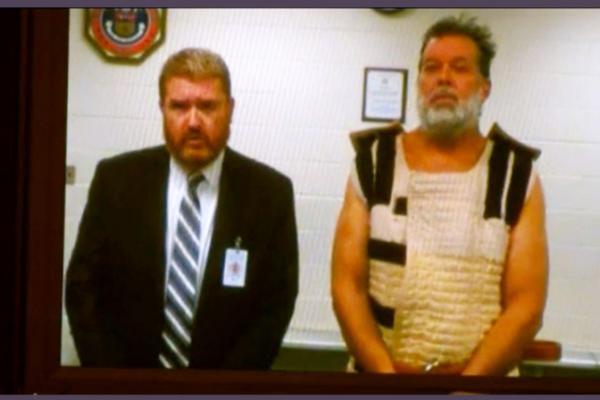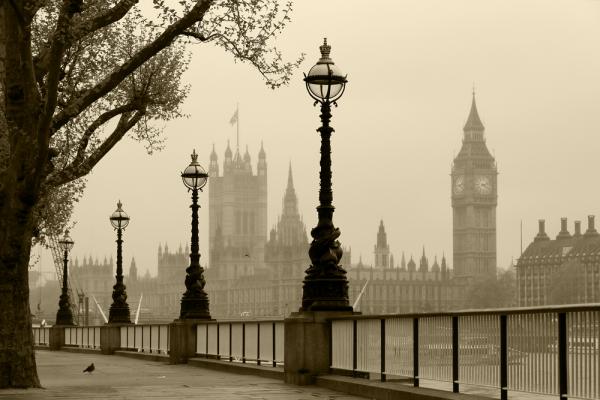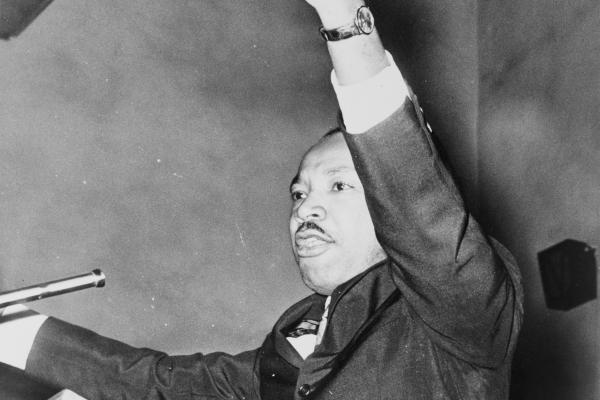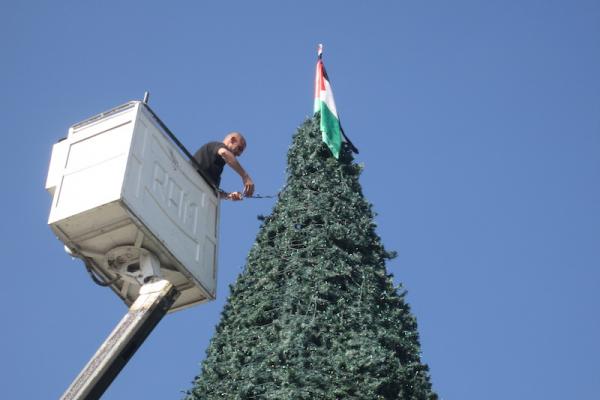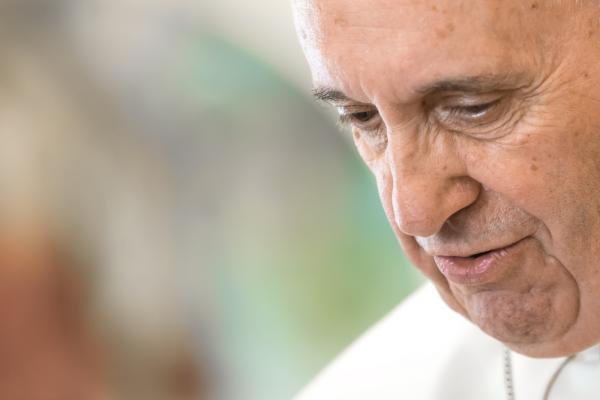For the past five years, Catholic priest Bill Carmody led a weekly Mass in the parking lot of the Colorado Springs Planned Parenthood facility where a gunman killed three people Nov. 27.
In fact, Carmody had been in the parking lot with a handful of protesters that very morning, and he learned about the shooting after he’d left, when people texted him to make sure he was not hurt.
“I am absolutely heartbroken about this,” he said on Nov. 30.
“I’m against all violence, and whether you’re in the womb or outside the womb, killing’s wrong.”
One of the most common criticisms of faith I have heard is this: if there is an all-powerful and loving God somewhere out there, why does this God allow horrible things to happen? In a world where there has always been war, sexual violence, starvation and murder, where is this omnipotent God? Why does he allow these things to happen? Where is she when people suffer injustice?
The Bible gives us plenty of examples of the abuses of the faithful, sometimes even at God's own hand (like in the book of Job). We read of the systemic oppression of the Jewish people and the early Christian church. Through this, God's people were always able to remain steadfast in their faith. Forming a defense of faith in God in the face of realized evil is known as theodicy.
So: In a nation where Blacks have been enslaved, lynched, and raped because of their race, and in time where people must declare that “black lives matter,” how do black Americans form their own theodicy to justify this violence, abuse, and systemic oppression?
And is it necessary to do so?
There are many reasons to recommend Brooklyn — its relatable story for one, its glowing visuals and performances for another. But Brooklyn’s commendable qualities go far beyond this, including the amount of respect writer Nick Hornby and director John Crowley give the movie’s female protagonist. Brooklyn is a movie about hard choices, and for the most part, Eilis makes those choices on her own. At different points in the film, she’s caught between romantic relationships, and familial and personal obligations. But in none of these situations does it feel like her hand is forced. The movie lets us know early that Eilis can take care of herself, and she’s never forced to compromise on that point, though she easily could have been.
Although politics aren’t really on Brooklyn’s agenda, the film also carries an unintentional point on that score worth considering. At a time when the United States is anxious about welcoming refugees and immigrants, this film reminds us that our country is made up largely of immigrants — some who look like Eilis, but also many who don’t.
The British government is launching an independent five-year inquiry under the leadership of a prominent New Zealand-born jurist to examine whether private and public institutions, including churches, failed to protect children from sex abuse.
At a news conference in London on Nov. 27, Justice Lowell Goddard, who will head the inquiry, said the investigation would focus on high-profile allegations of child abuse involving current or former members of Parliament, senior civil servants, and government advisers.
Archbishop of Canterbury Justin Welby asked Goddard to investigate the Church of England first, saying that he would order his own inquiry if there was a lengthy delay, the Anglican Communion News Service reported.
If this is your first Advent, or if it has been awhile, let me catch you up. Advent is the season of expectant waiting before Christmas. It’s a time to wake up, slow down, sit still, listen, and wait. A kind of expected, engaged waiting, with one another. And the first Sunday of Advent — celebrated on the four Sundays before Christmas — always starts with apocalyptic end-of-world scenarios.
Again, an odd way to start. But I think there is wisdom in it. The ancients saw fit to remind us of the harried, violent world into which the Christ child was born. Which, if we are honest, is also like the world in which we find ourselves.
Violence, brokenness, and heartache can take many forms. Each of us experience the heartache of recent weeks. Maybe it was a year-long affair; or Paris; or a lost job; or mass gun violence; or depression; or Laquan McDonald in Chicago, Ill.; or Garret Swasey in Colorado Springs, Colo.
“All flesh shall see the salvation of God” (Luke 3:1-6). Well, that depends.
It depends on where you are from. It depends on your country of origin. It depends on your religion. It depends on with whom you are associated. It depends on your race, your ethnicity, your gender, your sexual orientation. The list of criteria for salvation, contrived predominantly from our many fears, is long according to the world as we know it today, but not according to the Gospel of Luke. And since Luke is providing a particular portrait of Jesus, not according to Jesus either.
This passage from Luke for the Second Sunday of Advent points to competing worldviews. The opening verses are deceptively subversive. Into the religious reigns and imperial kingdoms of the first century C.E., the word of God comes. Emperor Tiberius, Pontius Pilate, Herod, Philip, Annas, and Caiaphas will have to tend with the rule of the word of God, a rule that insists on salvation for all.
The Palestinian Authority has asked municipalities to tone down their public Christmas celebrations this year amid escalating violence between Palestinians and Israelis.
Hana Amireh, who heads a government committee on churches in the West Bank, confirmed the Palestinian Authority is requesting “a certain decrease” in festivities following the deaths of dozens of Palestinians since mid-September. The majority of them were killed during clashes with Israeli forces or carrying out terrorist attacks, according to the Israeli government.
Amireh said the government has asked the municipality of Bethlehem, the town where Jesus was born and where official Palestinian celebrations of Christmas take place, not to set off holiday fireworks this year and to limit the festive lights and decorations that traditionally adorn the town to two main streets.
Pope Francis wrapped up his six-day trip to Africa in the war-torn Central Africa Republic on Nov. 30 by warning that religious conflicts are spawning civil war, terrorism, and suffering throughout the continent.
“Together we must say no to hatred, to revenge and to violence, especially violence perpetrated in the name of a religion or of God himself,” the pope said in Bangui, the capital.
“Together, we must say no to hatred, to revenge and to violence, particularly that violence which is perpetrated in the name of a religion or of God himself. God is peace, ‘salaam,’ ” the pope said, using the Arabic word for peace.
Given the terrorist attacks of the last few weeks, one might be forgiven for feeling a bit bleak about the human species, its frequent use of violence and its failure to negotiate solutions. We must be hard-wired for violence. Or perhaps “war is a force that gives us meaning,” as Chris Hedges put it in his 2002 book of the same title.
It turns out, however, that we’re evolutionarily wired not for violence but for cooperation.
"The vast majority of the people on the planet awake on a typical morning and live through a violence-free day — and this experience generally continues day after day after day," writes Douglas Fry.
"The real story should be the 13,748 gazillion times human beings default to cooperation and kindness!"
The narrative of a retail event like Black Friday weekend is broken.
What if we could embrace a new narrative? What if that new narrative is really an old narrative just seen with new eyes?
This weekend, the global church is starting Advent, which is a time of preparation for the coming of Jesus. However, we live in a world where Jesus has already entered. How should our lives look different in response to that and as a church be part of bringing the kingdom of God to earth in this Christmas season?
